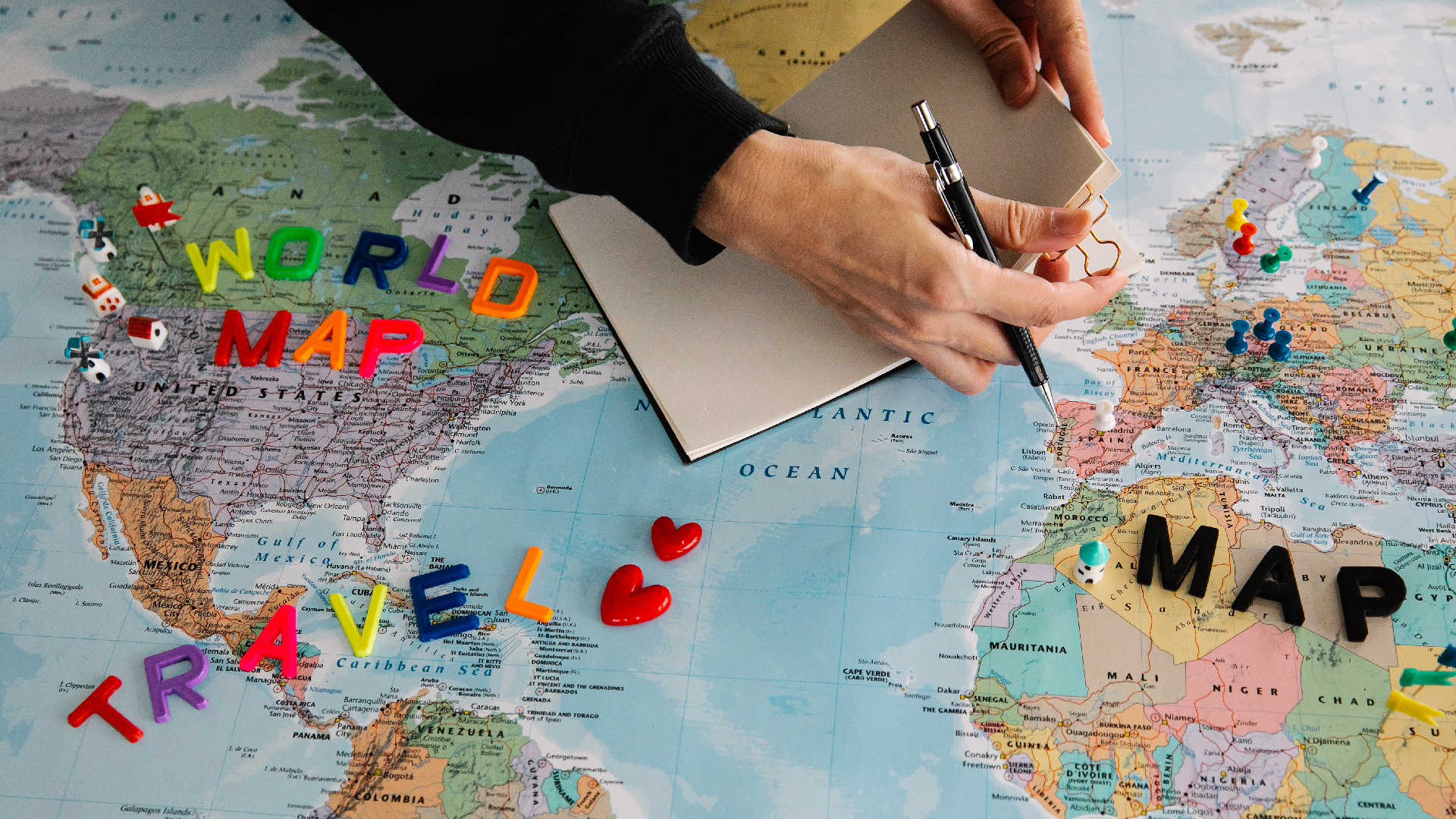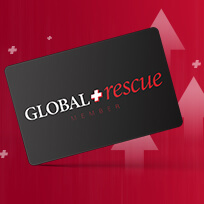The latest Global Rescue survey of the world’s most experienced travelers reveals how they manage higher travel costs, tourism crowds in 2023 and security and personal health concerns. The Global Rescue Traveler Sentiment and Safety Survey was conducted between January 30 and February 4, 2023, collecting more than 2,000 responses from current and former members. Respondents exposed a range of behaviors, attitudes and preferences regarding international and domestic travel.
Following more than two years of pandemic-related travel restrictions to mitigate the spread of COVID-19, travel experts predict travelers will re-engage in 2023 and boost global tourism by 30%. Will the diminishing coronavirus health threat lead to increased purchases of medical evacuation protection, travel health insurance and trip protection? Will the past two years of pandemic disruption leave lasting lessons for international travelers? The answers are mixed.

More than half (54%) of the world’s most experienced travelers surveyed by Global Rescue said they obtain a pre-travel health consultation with a physician to discuss their itinerary, pre-existing conditions, a medications list and any health concerns they may have to decrease medical risks during travel.
That’s nearly two times better than the average, according to Mass General Brigham that reported 30 million travelers visited countries overseas, but only 25 to 30% sought medical advice before they went.
“Certain health conditions and medications can increase your health risks during travel and these risks will vary by destination, activities and mode of travel,” said Jeff Weinstein, medical operations associate manager at Global Rescue.
Checking the medical and healthcare capabilities of foreign destinations is an essential travel-planning step that many travelers don’t do. The Global Rescue survey exposed that one-out-of-four international travelers needs hospitalization or medical attention during travel but only 38% researched the quality of medical care at their destination before traveling abroad. The balance (62%) did not do any research in advance.
“In today’s travel landscape, you may not want to travel to any destination where the level of medical care isn’t up to your standards unless you have medical evacuation services. It puts you, your health and your trip at risk,” said Dan Richards, CEO of Global Rescue.
“Hospital layouts differ. The medication might not look the same. Some hospitals use IVs with glass bottles instead of plastic bags. Triage may be done differently than it is in the United States,” Weinstein said.
“Travelers should obtain destination reports covering everything from travel health and personal security advice to currency and common scams before taking a trip, especially to a foreign country,” Richards added.
Expert Travel Tips, Secrets and Mistakes Revealed
The rise in global tourism is coinciding with higher-travel costs, inflation and above-average flight disruptions. The Global Rescue survey brought to light several travel tips, tricks and secrets on how to manage higher costs, potential travel disruptions and crowded destinations during the upcoming busy travel year.

The majority of travelers (41%) are planning trips further in advance to lock in reservations and prices. Another 18% said they plan to travel during off-peak seasons. Thirteen percent said they will seek undiscovered destinations or locales that are off-the-beaten path, 11% said they would avoid traveling on weekends and holidays to avoid crowds and nearly 5% revealed they would skip international travel and take trips domestically only. About 1-in-10 said they would not do anything differently.
The predicted rise in travel coincides with higher travel-related costs. Nearly half of the surveyed travelers (45%) are planning to absorb the higher travel costs without skimping. The other half will look for less expensive destinations (13%), reserve less costly lodging (8%), shorten trips (6%), find destinations that have an advantageous currency exchange with their home country currency (5%), do less shopping (5%), dine out less (4%) and do more bleisure travel combining work-related travel with leisure trips (3%).
Recurring news about airline staff shortages, disrupted flights, and jumps in cancellations are forcing travelers to protect their trips. More Americans are cautious after a spike in flight cancellations at the end of 2022, according to a Reuters report.
“As travel returns to pre-pandemic levels, the traveler mindset has permanently reconciled that emergency rescue and evacuation services are essential, whether it’s due to COVID, a natural disaster, civil unrest or simply needing emergency help when you’re traveling. Travel protection for emergency medical services and evacuation is no longer optional; it’s obligatory,” Richards said.
Scheduling nonstop flights (35%) whenever possible is one of the leading travel tips respondents will use to manage potential flight disruptions and staff shortages, followed by purchasing travel protection (30%) for delayed or canceled flights, lost luggage and trip cancellation, according to the Global Rescue survey. Eleven percent of travelers said they will avoid checking luggage and opt for carry-on baggage and 7% said they would travel during off-peak days and times.
As travelers plan trips for 2023, respondents revealed a shift in the types of travel they want compared to responses from spring 2022. The biggest change is a 40% dip in respondents who are planning to travel to visit family and friends. Another change is the 21% decline in surveyed travelers who are preparing for outdoor adventure trips.
Despite the shift, outdoor adventure travel led all types of international travel planning followed by a bucket list trip (26%), a culture exploration trip (24%), visiting friends and family, a dream trip (15%) and a wellness trip (5%). A fifth of respondents reported the international trips planned for 2023 were work-related or bleisure.
The survey revealed 7-out-of-10 of the world’s most experienced travelers are members of a Trusted Traveler Program, like TSA PreCheck or Global Entry, compared to only 22% of American flyers, according to a survey reported in Yahoo! Finance.
As travel returns following the easing of pandemic restrictions, many travelers are re-learning how to travel. According to the Global Rescue survey, even the most well-traveled individuals make mistakes. Survey respondents admitted that over-packing (28%) was the biggest travel mistake since returning to travel, distantly followed by overly ambitious travel itineraries (9%).
Travel mistakes like forgetting an international plug adapter, failing to change your phone data plan, drinking unsafe water or forgetting to notify your bank you would be out of the country each accounted for 4% or fewer responses. Letting your passport or Trusted Traveler Program membership expire, tipping inappropriately, forgetting your prescription medicine, or medical security protection each accounted for fewer than 2% of responses.
Shifting Traveler Fears
Traveler fears of COVID continue to plummet while concerns over civil unrest increase. The Global Rescue survey revealed the greatest anxiety among the world’s most experienced travelers about international travel is having an injury or illness unrelated to COVID. The survey further uncovered a major shift in traveler worries about civil unrest and terrorism in international destinations.
Since August 2022, apprehension about COVID dramatically dropped at a rate of 61%, down to 13% compared to 33% in late summer, according to the results of the quarterly surveys. While COVID fears continue to plunge, other traveler reservations are rising. Traveler concerns about civil unrest and terrorism nearly doubled in the last six months, jumping to 14% in the latest survey from 8% in late summer 2022.
Today, more than a third of travelers (37%) said their biggest fear is suffering a non-COVID illness or injury, followed by civil unrest (14%), trip cancellation (12%), being robbed (4%), natural disasters (3%) and nuclear attack (less than 1%).
When it comes to traveling internationally there are other concerns travelers have that, while less severe than illness or injury, are nevertheless worrisome, especially as travel returns to pre-pandemic levels but staffing shortages within the travel industry persist.
Nearly a quarter (23%) of survey respondents said hotel and lodging safety was most important, while 10% worry about car service and taxi safety. Some want to know if the destination is safe for families (15%) or women (11%) to travel. Ten percent want to know if they’ll need physical protection. Identity theft and cyber security remain important concerns with 9% of respondents. Less than 3% worry about automobile rental safety or environmental safety.
“Traveler confidence is skyrocketing, and they are mitigating their worries by safeguarding their trips and safety with more protections like medical evacuation, trip protection and travel health insurance,” Richards said. “Whether it’s flight disruptions, war, natural disaster, or a pandemic, the new normal for travelers includes travel protection for emergency medical services and evacuation. Travel protection services are no longer a take-it-or-leave-it option. We are forecasting significant increases in demand for travel protection services,” Richards said.











